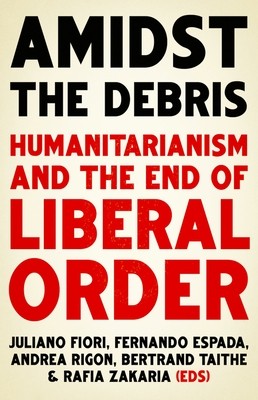
- We will send in 10–14 business days.
- Author: Juliano Fiori
- Publisher: Hurst & Co.
- ISBN-10: 1787383962
- ISBN-13: 9781787383968
- Format: 14.2 x 21.6 x 4 cm, softcover
- Language: English
- SAVE -10% with code: EXTRA
Reviews
Description
For many liberal commentators at the turn of the 1990s, the collapse of the Soviet Union represented a final victory for Western reason and capitalist democracy. But, in recent years, liberal norms and institutions associated with the post-Cold War moment have been challenged by a visceral and
affective politics. Electorates have increasingly opted for a closing inwards of the nation-state, not just in the democratic heartlands of Europe and North America, but also on the periphery of the world economy. As the popular appeal of the 'open society' is thrown into question, it is necessary
to revisit assumptions about the permanence of its enabling political and ethical projects.
on the relationship between humanitarianism and 'liberal order'. What role has humanitarianism played in processes of liberal ordering? Amidst challenges to liberal order, what are the implications for the political economy of humanitarianism, and for the practices of humanitarian agencies?
EXTRA 10 % discount with code: EXTRA
The promotion ends in 20d.06:06:10
The discount code is valid when purchasing from 10 €. Discounts do not stack.
- Author: Juliano Fiori
- Publisher: Hurst & Co.
- ISBN-10: 1787383962
- ISBN-13: 9781787383968
- Format: 14.2 x 21.6 x 4 cm, softcover
- Language: English English
For many liberal commentators at the turn of the 1990s, the collapse of the Soviet Union represented a final victory for Western reason and capitalist democracy. But, in recent years, liberal norms and institutions associated with the post-Cold War moment have been challenged by a visceral and
affective politics. Electorates have increasingly opted for a closing inwards of the nation-state, not just in the democratic heartlands of Europe and North America, but also on the periphery of the world economy. As the popular appeal of the 'open society' is thrown into question, it is necessary
to revisit assumptions about the permanence of its enabling political and ethical projects.
on the relationship between humanitarianism and 'liberal order'. What role has humanitarianism played in processes of liberal ordering? Amidst challenges to liberal order, what are the implications for the political economy of humanitarianism, and for the practices of humanitarian agencies?


Reviews